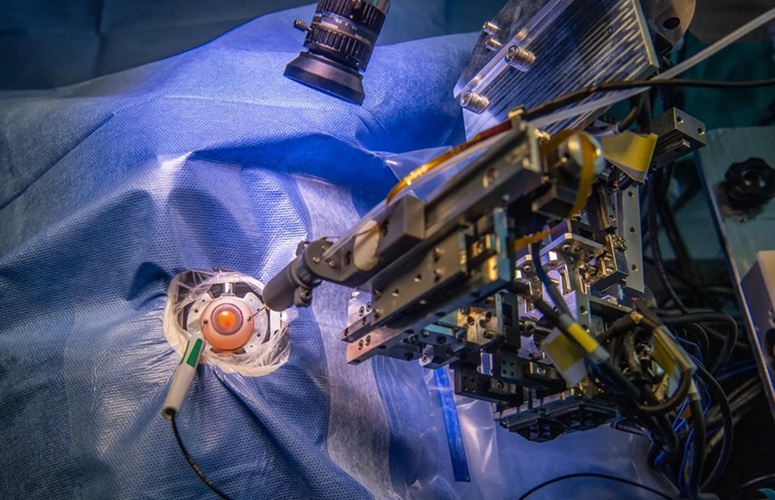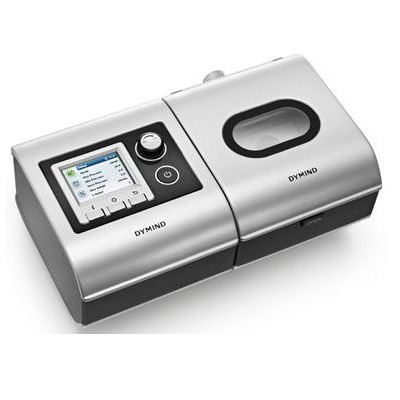Machine Learning Model Improves Mortality Risk Prediction for Cardiac Surgery Patients
|
By HospiMedica International staff writers Posted on 26 May 2023 |

Machine learning algorithms have been deployed to create predictive models in various medical fields, with some demonstrating improved outcomes compared to their standard-of-care counterparts. In cardiac surgery, risk scores provided by The Society of Thoracic Surgeons (STS) are often used to evaluate a patient's procedural risk. While these scores remain vital for hospitals to assess and improve their performance, they are drawn from population-wide data, which can fall short of accurately predicting risk for specific patients with complex pathologies.
Now, cardiovascular surgeons and data science specialists at Mount Sinai (New York, NY, USA) have developed a machine learning-based model that predicts mortality risk for individual cardiac surgery patients, offering a considerable performance advantage over current population-based models. This data-driven algorithm, built on extensive electronic health records (EHR), is the first institution-specific model of its kind for pre-surgery cardiac patient risk assessment. It allows healthcare providers to determine the optimal treatment strategy for each patient.
The team theorized that models based on EHR data from their own institution, created via machine learning, could provide a useful solution. Using routinely gathered EHR data, they developed a robust machine learning framework to generate a risk prediction model for post-surgery mortality that is customized to both the patient and the hospital. This model incorporates vital data about Mount Sinai’s patient population, including demographic, socioeconomic, and health characteristics. This is in contrast to population-based models like STS, which rely on data from various health systems across the U.S. The effectiveness of this approach is further enhanced by an efficient open-source prediction algorithm called XGBoost, which assembles a group of decision trees by progressively focusing on harder-to-predict segments of training data.
The research team utilized XGBoost to model 6,392 cardiac surgeries conducted at The Mount Sinai Hospital from 2011 to 2016, encompassing heart valve procedures, coronary artery bypass grafts, aortic resections, replacements, or anastomoses, and reoperative cardiac surgeries, which significantly increase mortality risk. The team then compared the performance of their model to STS models for the same patient sets. The study found that the XGBoost model outshone STS risk scores for mortality in all frequently performed cardiac surgery categories for which STS scores were designed. The predictive performance of the XGBoost model across all types of surgeries was also high, indicating the potential of machine learning and EHR data for constructing effective institution-specific models.
“The standard-of-care risk models used today are limited by their applicability to specific types of surgeries, leaving out significant numbers of patients undergoing complex or combination procedures for which no models exist,” said senior author Ravi Iyengar, PhD, the Dorothy H. and Lewis Rosenstiel Professor of Pharmacological Sciences at the Icahn School of Medicine at Mount Sinai, and Director of the Mount Sinai Institute for Systems Biomedicine. “Our team rigorously combined electronic health record data and machine learning methods to demonstrate for the first time how individual institutions can build their own risk models for post-cardiac surgery mortality.”
Related Links:
Mount Sinai
Channels
Critical Care
view channel
Light-Based Technology to Measure Brain Blood Flow Could Diagnose Stroke and TBI
Monitoring blood flow in the brain is crucial for diagnosing and treating neurological conditions such as stroke, traumatic brain injury (TBI), and vascular dementia. However, current imaging methods like... Read more
AI Heart Attack Risk Assessment Tool Outperforms Existing Methods
For decades, doctors have relied on standardized scoring systems to assess patients with the most common type of heart attack—non-ST-elevation acute coronary syndrome (NSTE-ACS). The GRACE score, used... Read moreSurgical Techniques
view channel
Robotic Assistant Delivers Ultra-Precision Injections with Rapid Setup Times
Age-related macular degeneration (AMD) is a leading cause of blindness worldwide, affecting nearly 200 million people, a figure expected to rise to 280 million by 2040. Current treatment involves doctors... Read more
Minimally Invasive Endoscopic Surgery Improves Severe Stroke Outcomes
Intracerebral hemorrhage, a type of stroke caused by bleeding deep within the brain, remains one of the most challenging neurological emergencies to treat. Accounting for about 15% of all strokes, it carries... Read morePatient Care
view channel
Revolutionary Automatic IV-Line Flushing Device to Enhance Infusion Care
More than 80% of in-hospital patients receive intravenous (IV) therapy. Every dose of IV medicine delivered in a small volume (<250 mL) infusion bag should be followed by subsequent flushing to ensure... Read more
VR Training Tool Combats Contamination of Portable Medical Equipment
Healthcare-associated infections (HAIs) impact one in every 31 patients, cause nearly 100,000 deaths each year, and cost USD 28.4 billion in direct medical expenses. Notably, up to 75% of these infections... Read more
Portable Biosensor Platform to Reduce Hospital-Acquired Infections
Approximately 4 million patients in the European Union acquire healthcare-associated infections (HAIs) or nosocomial infections each year, with around 37,000 deaths directly resulting from these infections,... Read moreFirst-Of-Its-Kind Portable Germicidal Light Technology Disinfects High-Touch Clinical Surfaces in Seconds
Reducing healthcare-acquired infections (HAIs) remains a pressing issue within global healthcare systems. In the United States alone, 1.7 million patients contract HAIs annually, leading to approximately... Read moreBusiness
view channel
Philips and Masimo Partner to Advance Patient Monitoring Measurement Technologies
Royal Philips (Amsterdam, Netherlands) and Masimo (Irvine, California, USA) have renewed their multi-year strategic collaboration, combining Philips’ expertise in patient monitoring with Masimo’s noninvasive... Read more
B. Braun Acquires Digital Microsurgery Company True Digital Surgery
The high-end microsurgery market in neurosurgery, spine, and ENT is undergoing a significant transformation. Traditional analog microscopes are giving way to digital exoscopes, which provide improved visualization,... Read more
CMEF 2025 to Promote Holistic and High-Quality Development of Medical and Health Industry
The 92nd China International Medical Equipment Fair (CMEF 2025) Autumn Exhibition is scheduled to be held from September 26 to 29 at the China Import and Export Fair Complex (Canton Fair Complex) in Guangzhou.... Read more














